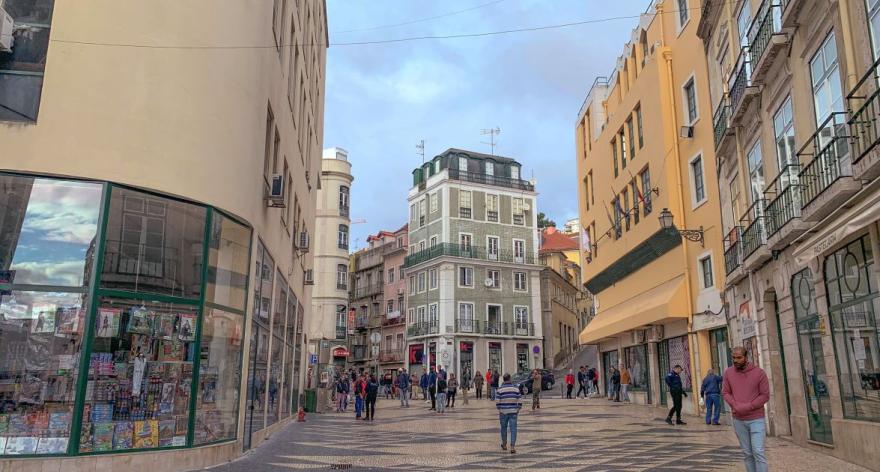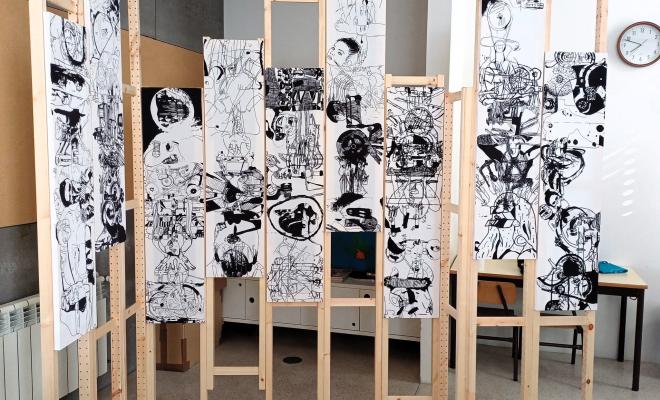
NaMoura explores Lisbon's Mouraria as the lens through which to investigate under-researched and entangled geographies of heritage and security in the urban world. How do heritage and security align and interact to shape the imagination and construction of cities?
The project addresses this question not only by revisiting archival material and scholarly works on the neighborhood in light of the new research question mentioned above, but also by ethnographically researching the discursive and material unfolding of heritage and security, as experienced and interpreted by various individuals.
NaMoura tests and complements theoretical intuitions and analytical lenses that have arisen from Vera Lazzaretti, the Principal Investigator's work in urban India, on a distinctively different empirical terrain. Insights from Mouraria, exemplifying contemporary urban dynamics characterized by migration, touristification, gentrification, and regeneration, where both security and heritage often play overlooked roles, will contribute to a fresh theoretical understanding of heritage and security as interconnected urban processes.
CRIA - Centro em rede de Investigação em Antropologia (Centre for Research in Anthropology), a member of the Anna Lindh Foundation's Portuguese Branch, is a dynamic network based on four universities (ISCTE, NOVA FCSH, UCoimbra and UMinho). This network enables each institutional division to autonomously develop its own activities while sharing the fundamental resources necessary to the management, fundraising, research dissemination, teaching and knowledge transfer. Furthermore, it encourages the mobility of CRIA’s researchers between the different institutional grounds.
Research in CRIA is structured in four major research groups which compose its scientific core and bring together researchers from the different institutional divisions. They promote a transnational network of research in anthropology that maximises resources and skills formerly scattered, resulting in a thickened scientific production at theoretical, methodological and thematic levels. Its consolidation is achieved by means of CRIA’s involvement, both as a partner and a host institution, in several projects and programmes in theoretical and applied research, nationally or internationally funded by various entities, the private sector and civil society.
CRIA’s mission also comprises the tightening of the relationships between research and training programmes through the organisation of courses and activities related to teaching in the four universities. In addition, CRIA hosts students of different levels of higher education, contributing to their integration in the scientific community.

